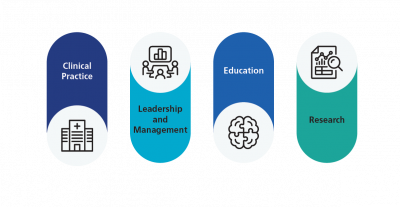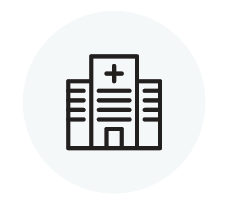Respiratory ACP in Infection Sciences – Case Study
2021 Clinical Infection in Practice – Best Practice and the NHS initiative Start Smart Then Focus prompted opportunities to consider both the workforce and also use of antibiotics for suspected sepsis and other infections.
Advanced Practitioner, Laura Ahearn, is transforming the service at Northern Care Alliance NHS Foundation Trust to use a person-centred approach – examining the patient, understanding their co-morbidities and their quality of life, and promoting collaborative working to determine the appropriate treatment. She is also working to optimise treatment of those with Clostridoides difficile.

Background:
Nationally, 22% of all hospitalised patients are on IV antibiotics at any time.
Population:
Patients at The Royal Oldham Hospital on antibiotics on 28 October 2024
Statistics
Of 404 antibiotics prescribed, 189 (47%) were intravenous and 215 (53%) were oral.
Intervention:
After gaining further experience working with the Consultant Microbiologist, Virologist and the Specialist Pharmacist. Advanced Practitioner Laura has added to the existing pathway:
– Ward rounds to complete history-taking, clinical examination and liaise with clinical team.
-Provide education and tools to wider workforce, in particular empowering the nursing workforce to prompt switch from IV to PO antibiotics.
Outcomes/Impact
Reduced costs and sustainability:
– Reduced number of IV dosages by 306 in June 2024, thus preventing inappropriate prolonged antibiotics,
– reducing the of risk of line infection, saving around 102 hours of nursing time, and supporting the green agenda
– reducing plastic and glass going into waste
Improved knowledge & competencies:
-Demonstrated improved nursing knowledge on benefits of switching to PO antibiotics in post-education session questionnaires

Laura incorporates the four pillars of practice in her role by:

Clinical
Autonomous practitioner providing a person-centred approach for Infection Sciences. Interpreting test results and prescribing according to guidelines. Taking an MDT approach linking microbiology with clinical teams for holistic patient care
Leadership
To have knowledge, skills and behaviours to inspire and lead by example within Infection Sciences. Drive forwards change to meet best practice recommendations
whilst fulfilling managerial responsibility.


Education
Providing expert knowledge to ward staff utilising the Infection Science competency framework. Develop and disseminate a tool to improve patient safety and monitor their infection working collaboratively to escalate and de-escalate to improve patient safety.
Research
Use evidence base to inform and improve practice whilst identifying gaps to improve service and patient safety. Quality Improvement project – evidencing the concept of a multi–disciplinary and person-centred approach for patient outcomes across acute and community healthcare settings
